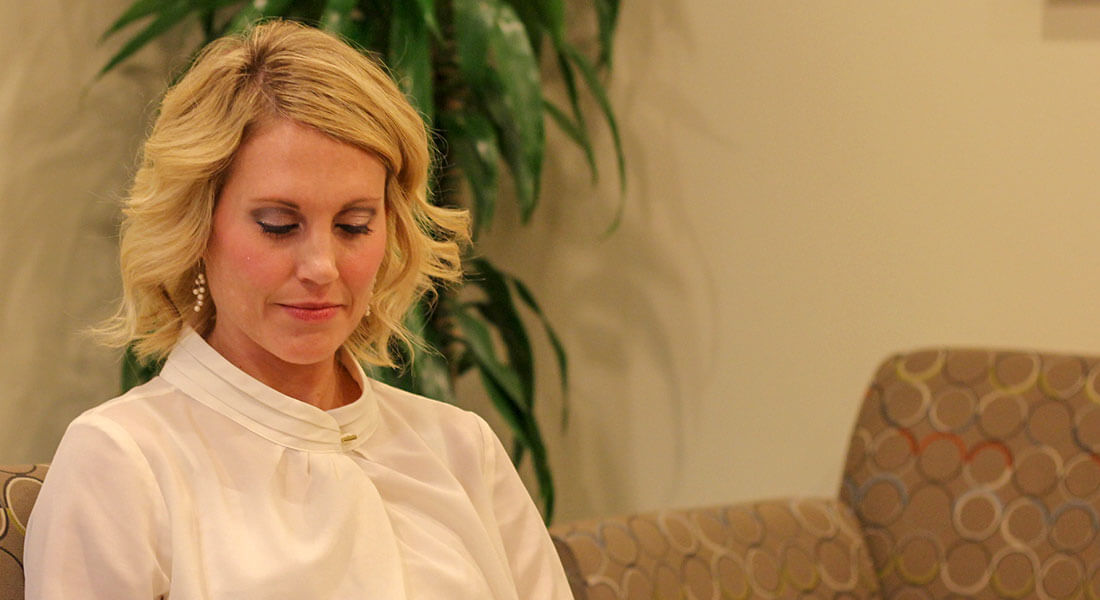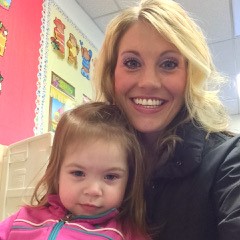What to Do When You Think Your Child Shows Signs of Autism
February 02, 2018
February 02, 2018

When Sarah McClary noticed her 18-month-old daughter wasn’t using words like other kids her age, she brought it up to the pediatrician. Each child reaches certain milestones at a pace that is right for her, so at first, they thought she might just be a late talker.
 By her 2nd birthday, Leah still didn’t have five words, much less 50, which is a target milestone for this age by many. For her specifically, communication seemed to be the main challenge, but they started speech, developmental and occupational therapy in the home, and physically there didn’t seem to be any issues. They still thought it could be a speech delay.
By her 2nd birthday, Leah still didn’t have five words, much less 50, which is a target milestone for this age by many. For her specifically, communication seemed to be the main challenge, but they started speech, developmental and occupational therapy in the home, and physically there didn’t seem to be any issues. They still thought it could be a speech delay.
Nearing age 3, there was some progress, but Leah still spoke fewer than 10 words. Then she started playing differently than she had when she was younger. She kept to herself a lot, lining up toys methodically, and practicing other behaviors that seemed out of character. That’s when Sarah and her husband realized the challenges may go beyond language and decided to reach out for an evaluation.
“As a parent, it can be tough. Putting a label and diagnosis on her was not appealing to me, so it was a difficult process. Hearing it out loud makes it real, which is tough for some people.”
They received the diagnosis of autism spectrum disorder that changed their lives, but in a different way than they anticipated. There are life shifts and sacrifices, of course, but the reality was quite different than the expectation. In only months of attending Hopebridge for applied behavior analysis (ABA) and other therapies, Leah’s development made huge leaps.
“We’ve seen Leah grow and make so much progress. She’s saying words. Speech-generation devices help her communicate. She knows how to functionally play with peers. These are skills she never would have learned if we hadn’t sought help because I wouldn’t have known how to teach her.”
The diagnosis created new paths not only for Leah to blossom into the girl she is today, but also for the entire family. Siblings learned that every individual is important and has his or her own needs. Sarah learned new ways to educate her daughter at home, and seeing ABA in action opened up doors for her own career.
Now a Board Certified Behavior Analyst (BCBA) at Hopebridge – and a parent of a child who has grown with the center for nearly three years – Sarah stresses the importance of early detection and intervention if there seem to be major differences in social interactions or behavior. She wants to make sure other parents see the power in knowing.
Sarah’s story is just one example of how autism can affect a family, but the signs and diagnosis can appear in a variety of ways. Every person with autism experiences things differently and there is such a broad range of symptoms that it would be nearly impossible to cover them all. And even if your child experiences some of these symptoms, it doesn’t necessarily equal ASD. But there is one thing experts all agree on: research shows that early intervention has a huge impact on a child’s development, especially from birth to 3 years old.
We cover the signs of autism in another post, but what to do if you believe your child seems to experience some of the symptoms? Here are a few recommended steps from Sarah and other therapists at Hopebridge that you can use to learn more and find out what to do next.
Lastly, remember that ASD isn’t something that can be “cured” with medications. Instead, follow the recommendations of the doctor or therapist to find a treatment that best suits your child. If called for, seek out a center like Hopebridge to get a personalized program created for your child to get the therapies they need to thrive in a happier, healthier life.
Don’t wait. We are actively accepting new patients. Find the Hopebridge Autism Therapy Center near you.
*Informed consent was obtained from the participants in this article. This information should not be captured and reused without express permission from Hopebridge, LLC. Testimonials are solicited as part of an open casting call process for testimonials from former client caregivers. Hopebridge does not permit clinical employees to solicit or use testimonials about therapeutic services received from current clients (Ethics Code for Behavior Analysts 5.07-5.08; BACB, 2020). Hopebridge does not provide any incentives, compensation, or renumeration for testimonials provided by a former client or client caregiver.